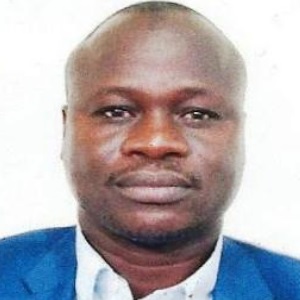
Al-Hamndou Dorsouma is currently working as Acting Director and Head of Division, Climate Change and Green Growth Department at the African Development Bank (AfDB) in Abidjan, Ivory Coast. He manages a team of climate change and green growth experts and climate fund coordinators, while coordinating the AfDB’s efforts on climate change in Africa. Previously, he worked at the Sahara and Sahel Observatory (OSS) in Tunis as an expert on environment and climate change, then as a senior official in charge of resource mobilization and development partnerships at the World Meteorological Organization in Geneva.
Mr. Dorsouma defended his Executive Doctorate in Business Administration (Executive DBA) in September 2021, on the topic of ‘Armed Conflict and Sustainable Development in Africa: The Role of Environmental Intelligence (Situation in the Ivory Coast)’, under the supervision of Professor Michel-André Bouchard, Professor Emeritus at the University of Montreal and McGill University in Canada
Thesis Direction
Pr Michel Bouchard
Thesis Title
Armed Conflict and Sustainable Development in Africa: The Role of Environmental Intelligence (Situation in Ivory Coast).
Abstract
Armed conflicts and conflict situations in general represent a serious threat to sustainable development. The thesis illustrates this by analyzing in particular the situation in Cote d’Ivoire where the armed conflict that took place from 2002-2011 and the recent conflict events have considerably affected the basis and prospects of sustainability of development in the country. The disturbances caused by the conflicts have aggravated poverty, hampered economic development, deteriorated social conditions, caused the collapse of institutional governance and led to significant environmental damages, among others.
The thesis highlights the multiple and complex issues raised by conflicts on sustainable development in general, and particularly in Cote d’Ivoire, namely economic, social, cultural, environmental, transboundary, security, military and humanitarian issues. It explores some prospective scenarios on the possible futures for Cote d’Ivoire, a country confronted with challenges posed by conflicts but concerned about the achievement of the Sustainable Development Goals by 2030. If the worst scenario of Cote d’Ivoire permanently affected by conflicts and unable to meet the SDGs is unlikely, it is mostly likely that the scenario of a country partially conflict-affected and able to meet only a few SDGs, represents a heavy trend. It is therefore critical to consider a rupture scenario of a country sheltered from any conflicts and able to achieve all the SDGs by 2030.
In response to the challenges posed by conflicts, environmental intelligence emerges as an appropriate instrument and as an analytical framework to examine the conflict situations and their implications for sustainable development in a more holistic manner. Creating an integrated and durable national environmental intelligence mechanism for Côte d’Ivoire would provide an opportunity to anticipate, manage and integrate conflict scenarios into the national foresight process and in the sustainable development planning framework.
In this context, environmental intelligence appears as a three-dimensional approach articulated around preventive, prospective and reactive dimensions. As such, it makes it possible to put conflicts at the center of preventive measures, strategic planning and crisis management. The success of environmental intelligence heavily relies on political will and adequate institutional coordination, including with state and non-state stakeholders as well as decentralized communities. It also depends on regional cooperation, given the cross-border nature of current conflicts in Africa. A national environmental intelligence mechanism for Cote d’Ivoire would therefore need to be anchored into a regional instrument that would facilitate cooperation and information sharing between countries. The thesis further recommends the creation of a national environmental intelligence fund for Côte d’Ivoire as well as an African regional facility on the same, with the aim to relieve national budgets constrained by the increased security expenditures. Such facilities will help finance and accelerate prevention, post-conflict reconstruction and sustainable development programs in conflict-affected countries in Africa.
Though useful, an environmental intelligence mechanism comes with a wide range of political, institutional, technical and financial challenges. However, the analysis of the situation in Côte d’Ivoire demonstrated that concerted efforts at both national and regional levels can help address the challenges posed by conflicts and their implications for sustainable development in Cote d’Ivoire, and by extension, in West Africa.
Given the importance of this issue for the African continent as a whole, environmental intelligence will require a continental response under the aegis of the African Union and other regional institutions such as the African Development Bank.

